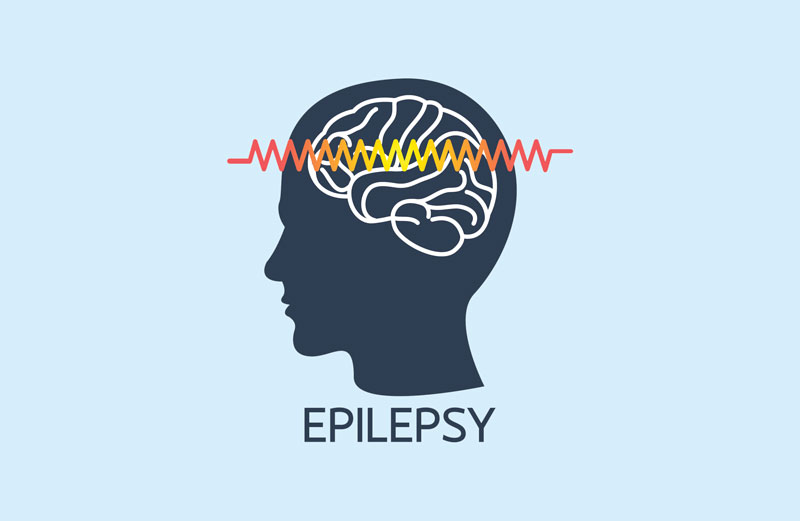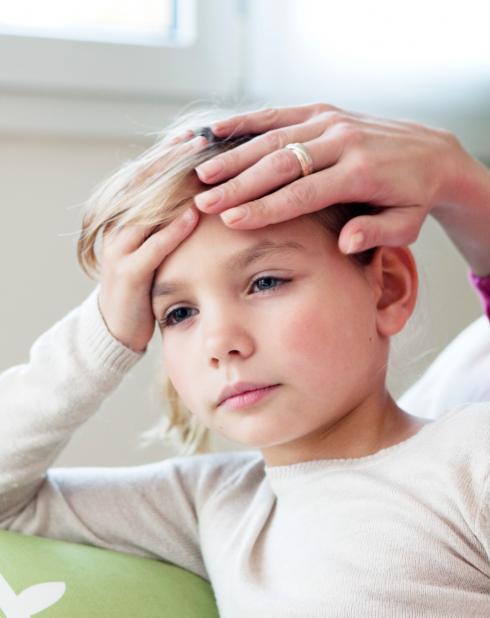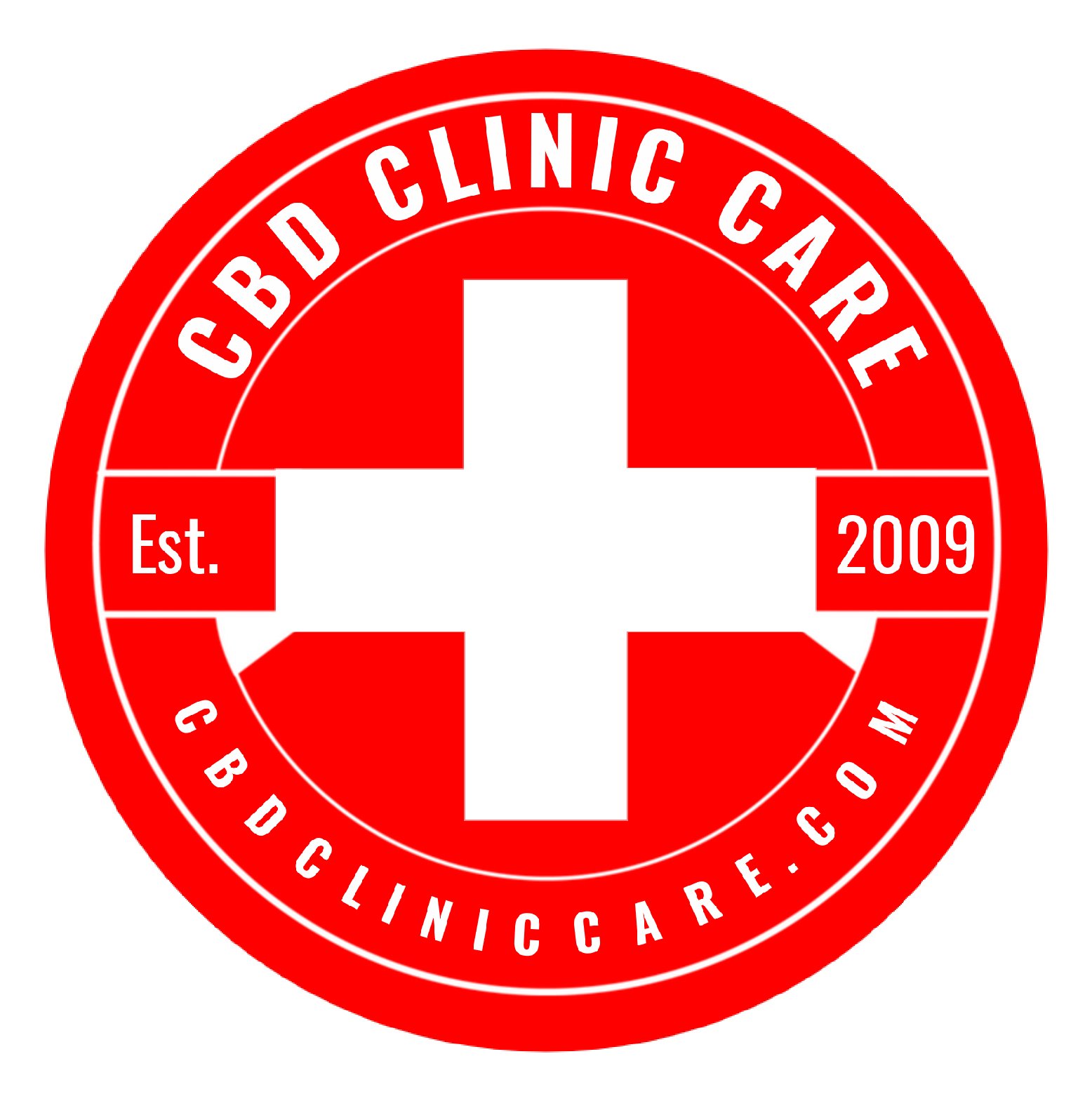Epilepsy
Epilepsy is a neurological disorder that disrupts electrical communication between neurons in the brain. Considered a spectrum disorder, different epilepsy syndromes are defined by clusters of symptoms or features and treated accordingly.
A CBD-based oil, with a small amount of THC, halved seizures in children with epilepsy resistant to traditional drugs. This is the result of a study carried out by researchers at the University of Saskatchewan, in Canada, which found improvements in children.
According to the study, the oil, with its anticonvulsant effect, would improve not only the health situation, but the general life of children by making them more interactive with their families.
Led by Richard Huntsman, a pediatric neurologist in the university’s college of medicine, researchers administered a 95% CBD and 5% THC healing oil to children (7 in total, ages 1 to 10) suffering from severe drug-resistant epilepsy. Over the six months of observation, the children received 10-12 milligrams of cannabis extract per kilogram of weight, per day. Despite initial concern, none of the subjects experienced intoxication effects. “What we were able to show was that plasma THC levels suggested a low risk of intoxication with a THC/CBD ratio of 1:20,” they noted. After the period of administration, the effects were surprising with a reduction of seizures by more than half. In 3 out of 7 children, seizures disappeared completely. In addition to improvements in the children’s health, the researchers found progress in their daily lives.
Dravet Syndrome & CBD
“Dravet syndrome is a severe childhood-onset epilepsy that causes multiple kinds of seizures, developmental delays, speech and language problems, behavioral issues and movement and balance problems,” said Brandy Fureman, vice president of research and new therapies at the Epilepsy Foundation. She was not involved in the new study.
Existing epilepsy medications usually don’t work for patients with Dravet, so “up to 20% of these children die from seizures before age 20 years,” Devinsky explained.
A total of 120 patients with Dravet syndrome, ranging in age from nearly 2 to 18 years old, were randomly assigned to receive either an oral solution of cannabidiol or a placebo for a 14-week period.
Within the study, individual participants experienced convulsive seizures at a rate ranging from four per month, on average, to 1,717 per month.
During the 14-week study, frequency of convulsive seizures decreased from an average of 12.4 to 5.9 per month in the cannabidiol group, compared with 14.9 to 14.1 in the placebo group. On average, the change in seizure frequency amounted to a 39% decrease for the cannabidiol group patients, compared with a roughly 13% decrease among the placebo group.
Five percent of the children became entirely seizure-free during the 14-week study. Overall, parents in the cannabidiol group felt that they witnessed “significantly greater” positive changes in their children than parents in the placebo group.
However, there was a downside. Most (93%) of the cannabidiol patients reported side effects, though three-quarters of the placebo group patients did as well. Nine out of 61 cannabidiol group patients dropped out of the study, eight of them because of side effects, compared with just three of the 59 placebo group patients.
“Tiredness (somnolence or fatigue) was most common; others were decreased appetite, diarrhea and vomiting,” Devinsky explained.
Wayne Hall,professor and director of the Centre for Youth Substance Abuse Research at the University of Queensland in Australia, believes the findings are “sufficiently encouraging” to warrant further research of cannabidiol that focuses on “related forms of epilepsy.”
Epilepsy
Epilepsy is a neurological disorder that disrupts electrical communication between neurons in the brain. Considered a spectrum disorder, different epilepsy syndromes are defined by clusters of symptoms or features and treated accordingly.
A CBD-based oil, with a small amount of THC, halved seizures in children with epilepsy resistant to traditional drugs. This is the result of a study carried out by researchers at the University of Saskatchewan, in Canada, which found improvements in children.
According to the study, the oil, with its anticonvulsant effect, would improve not only the health situation, but the general life of children by making them more interactive with their families.

Led by Richard Huntsman, a pediatric neurologist in the university’s college of medicine, researchers administered a 95% CBD and 5% THC healing oil to children (7 in total, ages 1 to 10) suffering from severe drug-resistant epilepsy. Over the six months of observation, the children received 10-12 milligrams of cannabis extract per kilogram of weight, per day. Despite initial concern, none of the subjects experienced intoxication effects. “What we were able to show was that plasma THC levels suggested a low risk of intoxication with a THC/CBD ratio of 1:20,” they noted. After the period of administration, the effects were surprising with a reduction of seizures by more than half. In 3 out of 7 children, seizures disappeared completely. In addition to improvements in the children’s health, the researchers found progress in their daily lives.
Dravet Syndrome & CBD
“Dravet syndrome is a severe childhood-onset epilepsy that causes multiple kinds of seizures, developmental delays, speech and language problems, behavioral issues and movement and balance problems,” said Brandy Fureman, vice president of research and new therapies at the Epilepsy Foundation. She was not involved in the new study.
Existing epilepsy medications usually don’t work for patients with Dravet, so “up to 20% of these children die from seizures before age 20 years,” Devinsky explained.
A total of 120 patients with Dravet syndrome, ranging in age from nearly 2 to 18 years old, were randomly assigned to receive either an oral solution of cannabidiol or a placebo for a 14-week period.

Within the study, individual participants experienced convulsive seizures at a rate ranging from four per month, on average, to 1,717 per month.
During the 14-week study, frequency of convulsive seizures decreased from an average of 12.4 to 5.9 per month in the cannabidiol group, compared with 14.9 to 14.1 in the placebo group. On average, the change in seizure frequency amounted to a 39% decrease for the cannabidiol group patients, compared with a roughly 13% decrease among the placebo group.
Five percent of the children became entirely seizure-free during the 14-week study. Overall, parents in the cannabidiol group felt that they witnessed “significantly greater” positive changes in their children than parents in the placebo group.

However, there was a downside. Most (93%) of the cannabidiol patients reported side effects, though three-quarters of the placebo group patients did as well. Nine out of 61 cannabidiol group patients dropped out of the study, eight of them because of side effects, compared with just three of the 59 placebo group patients.
“Tiredness (somnolence or fatigue) was most common; others were decreased appetite, diarrhea and vomiting,” Devinsky explained.

Wayne Hall,professor and director of the Centre for Youth Substance Abuse Research at the University of Queensland in Australia, believes the findings are “sufficiently encouraging” to warrant further research of cannabidiol that focuses on “related forms of epilepsy.”
As of only recently, a minority of patients with severe epilepsy can be prescribed an official CBD drug that’s now on the market. In June 2018, the FDA approved a cannabidiol prescription medication for the first time. Called Epidiolex, it’s approved specifically to treat seizures in two rare, severe forms of child-onset epilepsy in patients who are 2 and older. Epidiolex was developed by the British company GW Pharmaceuticals and its U.S. subsidiary Greenwich Biosciences. “The approval of Epidiolex or cannabidiol is a landmark in medicine,” Devinsky says. “A plant that has been used medicinally for probably well over 5,000 years has finally had one compound extracted from it and now is available to patients. It’s the first time such a medication, based on a cannabis plant, has been approved and scientifically established to be an effective treatment in the United States.”

As of only recently, a minority of patients with severe epilepsy can be prescribed an official CBD drug that’s now on the market. In June 2018, the FDA approved a cannabidiol prescription medication for the first time. Called Epidiolex, it’s approved specifically to treat seizures in two rare, severe forms of child-onset epilepsy in patients who are 2 and older. Epidiolex was developed by the British company GW Pharmaceuticals and its U.S. subsidiary Greenwich Biosciences. “The approval of Epidiolex or cannabidiol is a landmark in medicine,” Devinsky says. “A plant that has been used medicinally for probably well over 5,000 years has finally had one compound extracted from it and now is available to patients. It’s the first time such a medication, based on a cannabis plant, has been approved and scientifically established to be an effective treatment in the United States.”




